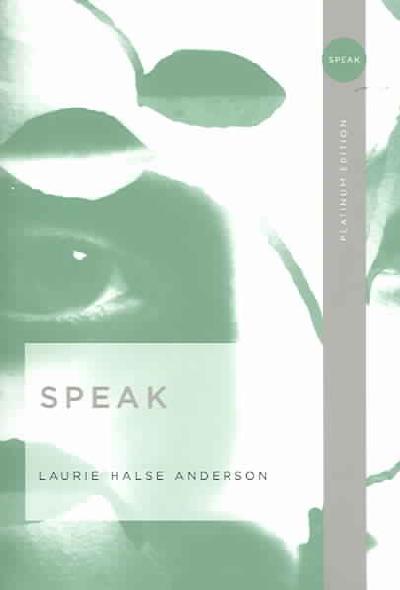 For some people, retail therapy comes in the form of shopping for clothes. For others, it’s furniture or knickknacks.
For some people, retail therapy comes in the form of shopping for clothes. For others, it’s furniture or knickknacks.
For me, it’s books. So when a recent miserable morning at work quickly started evolving into a miserable afternoon at work, I took action with a much-needed visit to a bookstore during my lunch break.
I entered the bookstore with no goal in mind, I do, after all, have piles and piles of books sitting at home waiting to be read. The wander method seemed like the best approach, and it quickly paid off.
I hit the jackpot when I came across “Speak,” by Laurie Halse Anderson. I’d wanted to read the book for some time, but other books, and life, kept getting in the way.
Published in 1999, “Speak” has gone on to receive multiple honors, including A Micahael L. Printz Honor and National Book Award finalist. It has become a catalyst for discussion and a target for censorship.
It is also one of the best books I’ve ever read.
“Speak” is the story of a young woman who chooses not to speak following a traumatic experience.
Melinda Sordino’s freshman year was not supposed to go like this. She was supposed to have friends and be involved in activities, but a phone call ruined all that. Melinda brought an end-of-the-summer party to a quick close by calling the cops, and now everyone hates her.
Melinda had a very good reason for calling the police, but she got scared and ran instead of speaking up. Now the outcast of her school, Melinda shuts down. She stops trying at school, with friends, at home. It’s as if she’s literally lost her voice.
As Melinda becomes more withdrawn, the inane cliques and double standards so prevalent in high school are magnified. Melinda has such disdainful feelings for her fellow students it makes no sense to talk with them anyway.
The problem with retreating into your head, however, is that you’re stuck dealing with things you may not want to deal with. And Melinda has a lot of that stuff running through her head. It’s eating away at her, and eventually she’s going to have to confront it, even if it means speaking out.
A key element in “Speak” is rape. There are no graphic elements and the incident is only briefly mentioned. It’s not the book’s centerpiece. The aftermath is. And it’s the aftermath that readers will identify with.
The protagonist in “Speak” may be a teenager, and the intended audience may be teens, but Anderson’s writing speaks to readers of all ages.
Everyone feels alone at some point in his or her life, if only for a brief moment. High school cliques and insecurities translate across the board to the workplace. Cliques and seemingly pointless assignments are often dealt with on a daily basis. These things often lead to feelings of hopelessness, isolation and of having no voice.
Told from Melinda’s point of view, the reader has a first-person look a depression and how it can affect people. They also get to see an inner strength not often associated with the condition.
“Speak” deals with hard subjects, but Anderson skillfully injects humor and heart into the text, gently easing her characters and the reader through tough situations.
There’s been a lot of talk recently as to whether subjects such as that covered in “Speak” are detrimental to teenagers. After reading “Speak” it’s hard to imagine how it could harm anyone. If anything, it seems like it would be helpful. Yes, it exposes readers to some hateful actions, but isn’t it better to read about it in a book than experience it in real life? In many cases, “Speak” will help youths know they are not alone.
Concerned parents should read this book, and others, with their children, making it a jumping off point for serious discussions.
There are multiple reasons why “Speak” has been awarded such praise — it’s time to find out why for yourself.

3 Comments
Added to my list! I’m looking forward to reading and learning this book. Thanks for your review.
*reading and learning from this book.
i love this book. and i can relate to Melinda i in so many ways. i understand that she wants to be safe and that at the end she thought that her friends really are not even if she did make a small mistake. Yes, she did run out without saying any thing but cut her some slack… tjings couldve been worse.